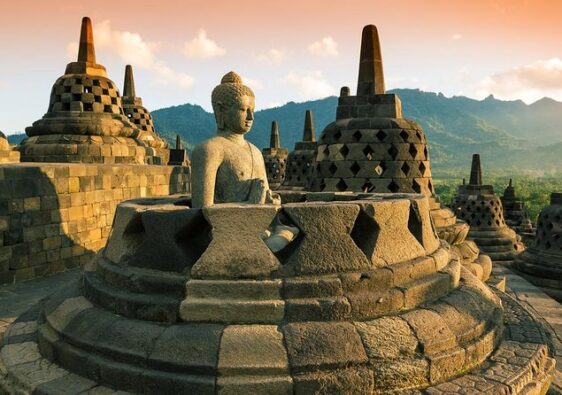Welcome to Bissau, the vibrant capital city of Guinea-Bissau. In this travel guide, we will explore the top places to visit, the best time to experience Bissau, exciting activities to engage in, transportation options, dining recommendations, accommodation choices, and valuable travel tips to make your journey through Bissau truly memorable.
Introduction to Bissau
Bissau is the largest city and the political, economic, and cultural heart of Guinea-Bissau. Located along the Atlantic Ocean, this bustling city offers a blend of colonial history, contemporary culture, and natural beauty.
Places to Visit in Bissau
- Presidential Palace: Begin your exploration at the Presidential Palace, a symbol of the nation’s history and government. While visitors may not enter, the building’s architecture is impressive, and the nearby gardens offer a pleasant stroll.
- Bissau Fort: Discover the Bissau Fort, a historical site with a museum showcasing Guinea-Bissau’s past. The fort provides panoramic views of the city and the Geba River.
- Bandim Market: Immerse yourself in the vibrant atmosphere of Bandim Market, where you can shop for local crafts, fresh produce, and immerse yourself in the city’s daily life.
Best Time To Visit Bissau
The best time to visit Bissau is during the dry season, which typically spans from November to April. During this period, you can enjoy pleasant weather with lower humidity and minimal rainfall, making it ideal for outdoor activities and exploration. The wet season, from May to October, brings heavy rains, which may result in flooded roads and limited access to certain areas.
Things to Do in Bissau
- City Exploration: Explore the capital city, Bissau, and immerse yourself in its history, culture, and vibrant street life. Visit local markets, museums, and historical sites.
- Cultural Encounters: Engage with the local communities to learn about their traditional practices, music, dance, and rituals. Participate in cultural activities to gain insight into their way of life.
- Beach Relaxation: While Bissau itself doesn’t have pristine beaches, you can take short trips to nearby coastal areas for beach relaxation, swimming, and sunbathing.
How to Get Around in Bissau
Getting around in Bissau can be accomplished using various transportation modes: - Taxis: Taxis are readily available in Bissau and offer a convenient way to navigate the city. Be sure to negotiate fares before your journey.
- Public Minibusses: Public minibusses, known as “toca-tocas,” are a common mode of transportation within the city. They follow established routes and are an affordable option for getting around.
- Walking: Exploring Bissau City on foot is a great way to experience its vibrant street life and discover hidden gems. Many attractions are within walking distance of each other.
Where to Eat in Bissau
Bissau offers a variety of dining options, from local cuisine to international flavors: - Local Cuisine: Sample traditional Guinean dishes, including rice with “manjaco” sauce, grilled fish, and flavorful stews, at local eateries and street food vendors.
- International Cuisine: Explore international restaurants in Bissau, offering Portuguese, French, and seafood dishes.
Famous Street Stalls in Bissau
Street stalls in Bissau offer a taste of local delicacies, such as grilled meat skewers, fried plantains, and seasonal fruits. These stalls provide an opportunity to savor the region’s culinary traditions.
Where to Stay in Bissau
Accommodation options in Bissau cater to various budgets and preferences:
- Hotels: Bissau has a range of hotels, from luxury to mid-range, offering comfortable amenities and services.
- Guesthouses: Guesthouses and smaller lodgings provide budget-friendly options, often with a more intimate atmosphere.
Travel Tips for Bissau
As you plan your visit to Bissau, consider these travel tips for a smooth and enjoyable experience: - Visa Requirements: Check the visa requirements for Guinea-Bissau based on your nationality before traveling to Bissau.
- Health Precautions: Consult your healthcare provider for necessary vaccinations and health precautions before visiting this region.
- Language: Portuguese is the official language, but many locals speak indigenous languages and some French or English in urban areas.
- Currency: The currency in Guinea-Bissau is the West African CFA franc (XOF). Carry cash in the local currency, as credit card acceptance may be limited in some places.
- Respect Local Customs: Embrace the local culture and traditions of the communities with respect and an open mind. Dress modestly when visiting religious sites and ask for permission before taking photos of people.
In conclusion, Bissau, Guinea-Bissau’s capital, offers a dynamic and culturally rich travel experience, where you can explore history, engage with the local culture, and immerse yourself in the vibrant atmosphere of the city. So, pack your bags, embark on an adventure, and discover the charms of Bissau and its surrounding areas.

